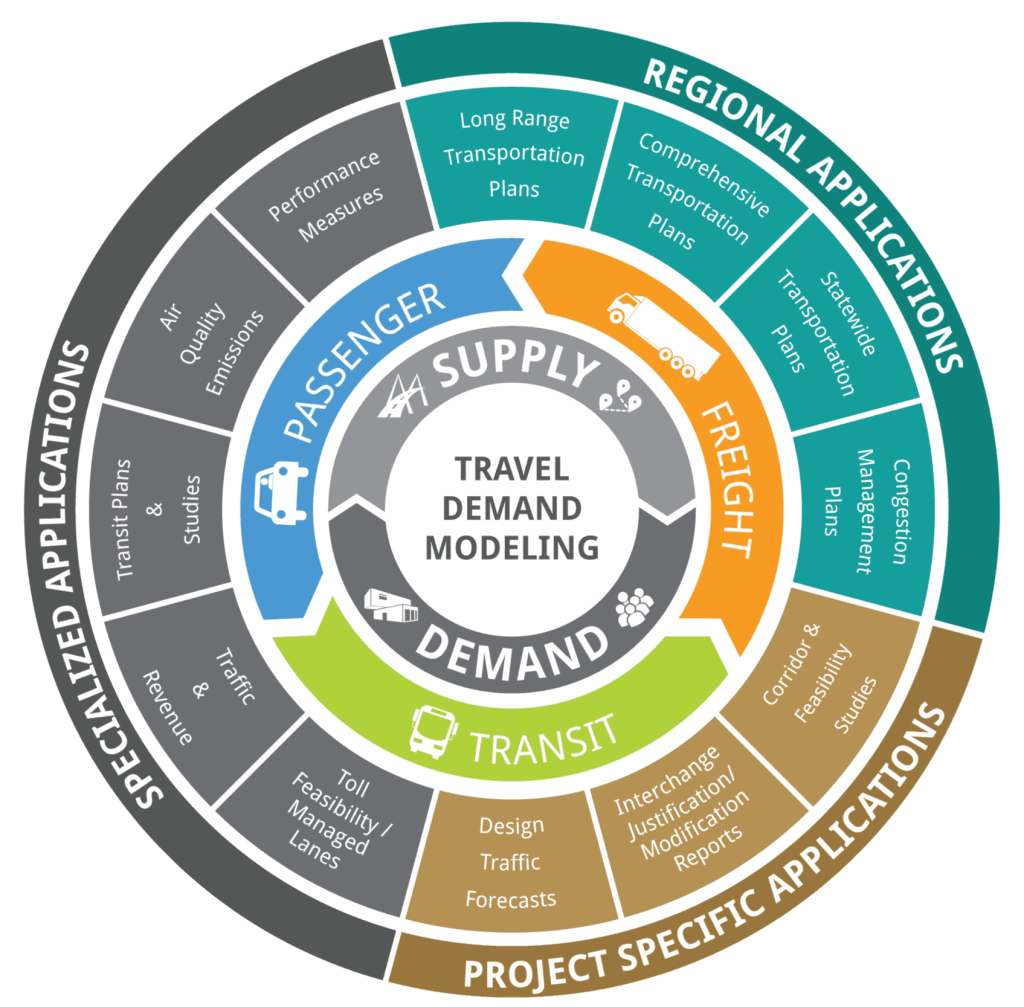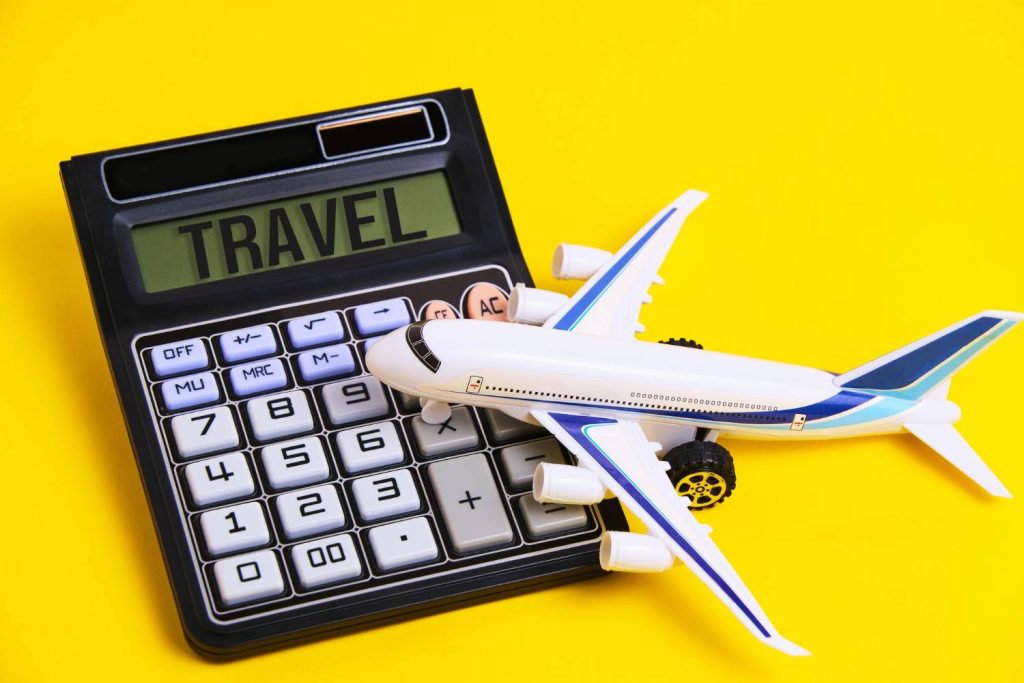Travel demand has surged in recent years, reflecting an unyielding desire for exploration and adventure among consumers. During a revealing interview on CNBC’s ‘Squawk Box,’ Glenn Fogel, CEO of Booking Holdings, highlighted this ongoing trend and addressed the various challenges facing the travel sector. Despite economic uncertainties and shifting policies, Fogel is optimistic about the travel industry, citing robust consumer interest as a driving force. He also pointed out how Booking Holdings is leveraging artificial intelligence to enhance its offerings and meet evolving traveler expectations. As travel industry trends continue to change, Fogel’s insights remind us that the fundamental urge to travel remains a powerful motivator for many, ensuring that demand will stay high.
The quest for travel remains a primary aspiration for many individuals worldwide, as indicated by the latest insights from industry leaders. Glenn Fogel of Booking Holdings articulated this sentiment in his recent CEO interview, shedding light on how global travel dynamics are shifting. Factors such as technological advancements, particularly in artificial intelligence, are reshaping the landscape, allowing travel companies to better cater to their clientele. As trends develop in response to both consumer needs and economic contexts, the importance of understanding current travel patterns becomes crucial for both businesses and travelers alike. In this evolving narrative, the desire to explore new destinations and experiences stands firm as a cornerstone of the modern travel experience.
Understanding Travel Demand Trends in 2023
The travel demand landscape in 2023 has shown remarkable resilience, with consumers eager to explore destinations despite the uncertain economic environment. Glenn Fogel, the CEO of Booking Holdings, highlighted this enduring enthusiasm during his interview on CNBC’s ‘Squawk Box.’ He pointed out that the desire to travel is fundamentally embedded in human culture, and this has not diminished, even amid challenges like fluctuating policies and economic pressures. As the travel industry navigates through these complexities, understanding consumer behavior and preferences becomes crucial in catering to this pronounced travel demand.
In light of this persistent travel demand, companies need to innovate and adapt to meet the changing needs of consumers. Fogel discussed how Booking Holdings has utilized artificial intelligence technologies to enhance user experience and streamline booking processes. By leveraging machine learning algorithms, the company can offer personalized recommendations and real-time updates, making travel planning smoother than ever. The integration of these advanced technologies not only caters to current demand but also positions Booking Holdings as a forward-thinking leader in the travel sector.
The Role of Artificial Intelligence in Modern Travel
Artificial intelligence (AI) is transforming the travel industry, and as Glenn Fogel noted, it is a pivotal element for companies striving to meet the evolving expectations of consumers. By harnessing AI, airlines, hotels, and booking platforms can analyze vast amounts of data to predict trends, optimize pricing, and enhance customer interactions. This technological advancement not only improves operational efficiency but also fosters loyalty among travelers, who increasingly appreciate personalized experiences. AI is set to redefine how companies engage with their customers, incorporating insights from past behaviors to tailor services accordingly.
Moreover, the implementation of AI-driven chatbots and virtual travel assistants showcases a significant shift towards automation in customer service. These tools enable companies to provide immediate responses to inquiries, significantly enhancing the customer experience. As highlighted by Fogel during the CNBC interview, the travel industry’s future lies in its ability to adapt to these tech-driven changes while maintaining a genuine connection with travelers. The combination of human insight and artificial intelligence ensures that the travel sector can respond effectively to emerging trends and consumer demands.
Challenges Facing the Travel Industry
Despite the optimistic outlook on travel demand, the industry continues to confront various challenges. Issues such as geopolitical uncertainties, inflationary pressures, and changing consumer preferences require travel companies to remain agile. Glenn Fogel’s insights reveal that while demand remains strong, companies like Booking Holdings must navigate these hurdles carefully. The ongoing evolution of travel policies worldwide adds another layer of complexity, making it essential for businesses to stay informed and adaptable to maintain their market position.
Additionally, the resurgence of travel post-pandemic has come with its own set of challenges, including staffing shortages and supply chain disruptions. Companies are tasked with not only meeting the rising travel demand but also ensuring that they can deliver quality experiences amidst these operational hurdles. As emphasized by Fogel, understanding these challenges is vital for long-term success in the travel industry. By anticipating and addressing these issues, Booking Holdings aims to solidify its status as a leader in an increasingly competitive landscape.
The Future of Travel: Embracing Innovation
As the travel industry looks toward the future, embracing innovation is imperative for growth. Glenn Fogel’s leadership at Booking Holdings is strongly centered around integrating cutting-edge technologies to enhance traveler experiences. By prioritizing innovation, Booking Holdings aims to not only meet current travel demands but also anticipate future trends. This proactive approach positions the company to capitalize on emerging opportunities, ensuring they remain at the forefront of the travel market.
Moreover, the shift towards sustainable travel practices is beginning to play a significant role in shaping the future of the industry. Consumers are increasingly seeking environmentally friendly travel options, prompting companies to incorporate sustainability into their business models. Innovations in eco-conscious travel solutions will not only appeal to the growing demographic of environmentally aware travelers but also align with global efforts towards sustainability. The integration of innovative practices will thus be crucial for the travel sector’s ability to thrive in a rapidly changing environment.
Booking Holdings: A Leader in Travel Innovation
Booking Holdings has positioned itself as a leader in the travel industry, particularly through its commitment to innovation and technology. Glenn Fogel highlighted in his interview how the company’s strategic focus on integrating artificial intelligence enhances their service offerings, catering to a tech-savvy generation of travelers. By leveraging data analytics and AI, Booking Holdings is adept at predicting travel trends and adapting its services accordingly, which is paramount in maintaining a competitive edge in such a dynamic market.
Furthermore, the company’s strategic investments in enhancing user experience reflect an unwavering dedication to meeting consumer demands. With a robust platform that streamlines the booking process, Booking Holdings stands to benefit from the surge in travel demand while overcoming existing market challenges. This leadership in travel innovation not only strengthens customer loyalty but also elevates the overall brand presence in the travel sector.
Market Response to Economic Conditions
The travel market’s response to changing economic conditions has been one of adaptation and resilience. During his appearance on ‘Squawk Box,’ Glenn Fogel addressed how Booking Holdings navigated fluctuating market dynamics while maintaining strong travel demand. As consumers face economic uncertainty, the travel sector must continuously evaluate its pricing strategies and product offerings to align with the disposable income of potential travelers. Understanding market conditions allows travel companies to craft targeted promotions that foster engagement and spur travel demand.
As the economy evolves, so too do the priorities and desires of consumers. Booking Holdings recognizes that effective marketing is rooted in responsiveness to these shifting landscapes. Personalized offers and tailored experiences are growing increasingly important as travelers seek value for their investments. By continually refining their approach in response to economic indicators, companies within the travel industry can ensure they resonate with consumers, thus sustaining their appeal in an unpredictable market.
Resilience of the Travel Industry Post-Pandemic
The resilience of the travel industry in the aftermath of the pandemic is noteworthy, as demand has rebounded sooner than many expected. Glenn Fogel remarked on this resurgence during his interview, emphasizing that while the past years have challenged the industry, the intrinsic desire for travel has triumphed. This ongoing recovery highlights the importance of adaptability in business models, as companies respond to varied consumer needs and preferences in a transformed marketplace.
Furthermore, the industry has seen a shift toward more spontaneous travel plans as consumers yearn for experiences after prolonged restrictions. Travel companies are capitalizing on this trend by offering flexible booking options and last-minute deals. For Booking Holdings, understanding these evolving expectations is critical to remaining relevant. The resilience of the travel industry is further bolstered by advances in technology, enabling companies to provide safe, efficient, and enjoyable travel experiences that cater to the new normal.
Consumer Preferences Shaping Travel Offerings
Consumer preferences are at the forefront of shaping modern travel offerings, necessitating a deep understanding of traveler motivations. Glenn Fogel’s insights into current travel demand illustrate how consumer desires influence booking behavior and service expectations. Companies must be attuned to these preferences, which often lean towards personalized experiences that provide unique and memorable adventures. The continuous gathering of consumer insights enables travel companies to curate experiences that resonate with travelers, ultimately driving loyalty and repeat business.
Additionally, travelers today prioritize sustainability and ethical considerations when choosing their travel options. This shift is catalyzing companies to alter their offerings in response to consumer demand for eco-friendly practices. By promoting sustainable tourism and supporting local economies, businesses can align themselves with the values of their customer base, fostering a strong emotional connection. Fogel’s commitment to understanding consumer preferences highlights the need for ongoing dialogue between travel companies and their clientele to craft offerings that reflect their values and aspirations.
The Importance of Adaptability in the Travel Market
Adaptability is crucial for success in the ever-evolving travel market. Glenn Fogel emphasized this point during his CNBC interview, noting that the ability to pivot and respond to changing market conditions is vital for thriving in the face of challenges. Companies like Booking Holdings exemplify adaptability by continuously refining their strategies and leveraging emerging technologies to anticipate consumer needs. This proactive stance not only enhances operational efficiency but also ensures that services remain relevant amidst dynamic market trends.
Additionally, the travel industry must be equipped to manage uncertainties, whether they stem from economic shifts, geopolitical tensions, or public health concerns. Organizations that prioritize flexibility in their operations—such as implementing adjustable pricing models and scalable services—can better navigate these challenges. Fogel’s insights reinforce the idea that adaptability must be a foundational element of any travel brand’s strategy to maintain market relevance and drive customer loyalty.
Frequently Asked Questions
What did Glenn Fogel say about current travel demand during the CNBC interview?
In his CNBC interview, Glenn Fogel, CEO of Booking Holdings, highlighted that current travel demand remains strong despite market challenges like economic uncertainties. He emphasized that the desire to travel among consumers is fundamentally robust, showcasing the enduring appeal of travel.
How is Booking Holdings responding to changes in travel demand?
Booking Holdings is responding to changes in travel demand by integrating artificial intelligence into its services. This adaptation aims to enhance customer experience and addresses evolving trends in the travel industry, ensuring they meet the demands of modern consumers effectively.
What factors affect travel demand according to the travel industry trends discussed by Fogel?
Glenn Fogel noted that travel demand is influenced by various factors including economic conditions, policy uncertainties, and consumer sentiment. Despite these challenges, he remains optimistic about the fundamental desire for travel, which drives the industry.
Why is artificial intelligence important in the context of travel demand?
Artificial intelligence is crucial in managing travel demand as it allows companies like Booking Holdings to analyze consumer behavior, personalize services, and streamline operations. This innovation is essential for adapting to market changes and meeting customer expectations in the travel sector.
What are the future expectations for travel demand according to Booking Holdings?
According to Glenn Fogel, the CEO of Booking Holdings, the expectation for future travel demand is optimistic. He believes that regardless of current market challenges, the innate desire for travel will persist, ensuring a stable recovery and growth in the travel industry.
| Key Point | Details |
|---|---|
| Glenn Fogel’s Insights | Glenn Fogel discussed travel demand on CNBC’s ‘Squawk Box’, highlighting ongoing consumer desire for travel despite market challenges. |
| Market Challenges | Fogel noted policy uncertainties and economic factors as challenges affecting the travel market. |
| Booking Holdings Adaptation | The company is integrating artificial intelligence into its services to innovate in a changing market. |
| Consumer Desire for Travel | Fogel concluded by stating that the fundamental desire for travel remains strong among consumers. |
Summary
Travel demand remains a key focus for industry leaders like Glenn Fogel, CEO of Booking Holdings, who recently emphasized the unwavering consumer desire for travel, even amidst various market challenges. Fogel’s insights into the integration of innovative technologies such as artificial intelligence signify a proactive approach to meet evolving consumer needs. As he aptly stated, ‘at the end of the day, people will always want to travel,’ reinforcing the importance of adaptability and innovation in the travel sector.



